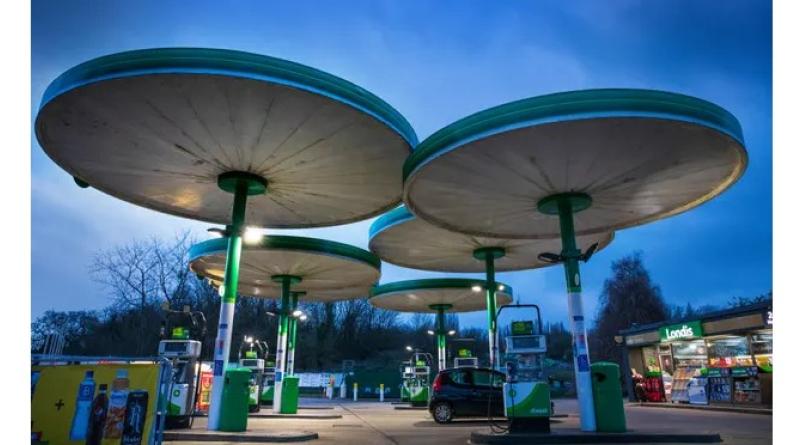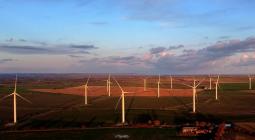Tories plan big expansion of wind farms ‘to protect national security’

Planning rules to be relaxed so that renewables and nuclear power can boost energy independence after Ukraine invasion
A massive expansion of wind farms across the UK is now needed for national security reasons, the business secretary has declared, as, following Russian invasion of Ukraine , the government considers sweeping changes to planning laws to improve Britain's energy independence.
Boris Johnson is planning to unveil a radical new "energy strategy" within a fortnight to ensure the UK can meet its domestic needs from a mix of renewables and nuclear. The war in Ukraine has brought further huge rises in global fossil fuel prices and exposed countries' dependence on overseas supplies.
Remarkably, the need for more on- and offshore windfarms - traditionally a highly controversial subject in the Conservative party - is now being talked about within government as a matter of security, rather than a way of fighting climate change.
Renewables such as wind and solar power are expected to be part of the new government strategy to free Britain from dependence on imported oil and gas and spare households and businesses from the effects of wild fluctuations on global energy markets.
Kwasi Kwarteng, the business, energy and industrial strategy secretary, said last week on Twitter : “This is no longer about tackling climate change or reaching net-zero targets. Ensuring the UK's clean energy independence is a matter of national security. "Putin can set the price of gas, but he can not directly control the price of renewables and nuclear we generate in the UK."
Official figures show that meeting net-zero targets would lead to a drop in gas use of 65% by 2035 in the UK, and almost 100% by 2050.
While some Tory MPs also want the moratorium on fracking for shale gas to be lifted to help reduce dependence on imports, cabinet sources said there was no realistic prospect of doing so in the short term, until the process had been proven to be demonstrably safe. Instead a majority of cabinet ministers back a big push for more renewables and an expansion of nuclear.
Other countries are also using security issues raised by the Ukraine crisis to push urgently for more green and clean energy. Germany's government announced last week an additional € 30bn for its clean energy transition in response to the invasion. Christian Lindner, the finance minister, described renewables as "freedom energies" that could allow Germany a greater degree of energy independence and transform "the economy, society and the state".
Labor has called for an urgent “national sprint” to build a clean, green, secure energy future including more renewables. Ed Miliband , shadow secretary for climate change and net zero, said last week: “Energy security is national security. Homegrown, clean power is the cheaper, more secure route to energy security and sovereignty.
In 2020 renewables generated 43 per cent of Britain's electricity while gas, oil and coal contributed about 40 per cent. The remaining capacity was filled by nuclear.
In October last year Johnson announced that all of Britain's electricity will come from clean energy sources by 2035. The plan now is to bring that date forward.
While many Conservative MPs and party members have opposed windfarms, there are signs of growing support. Kevin Hollinrake, Tory MP for Thirsk and Malton, said: “England's planning system has blocked almost all new onshore wind developments in the past five years, despite this being the cheapest source of new electricity generation. Reforming these rules, while ensuring communities still get a meaningful say, will spur investment in homegrown clean energy and accelerate our transition away from expensive fossil fuels. ”
Sam Hall, director of the Conservative Environment Network, an independent forum for Tories who back decarbonisation, commented: “Streamlining planning approvals and regulations would unleash more wind and solar projects to provide cheap, clean, homegrown power. Now is the time to accelerate the drive towards net zero and away from volatile fossil fuels. ”
Author: Toby Helm
Photograph: Gary Calton





